Looking for the best Python build tools to accelerate your development process? Well, check out this list of the best 5 Python build tools that every Python developer should check.
What is a build tool?
A build tool in programming is a crucial component of software development. It automates the process of compiling source code, linking libraries, and creating an executable or deployable software artifact.
Build tools, like Apache Maven or Gradle, enhance efficiency by managing dependencies, ensuring code consistency, and automating repetitive tasks. They streamline the build process, allowing developers to focus on coding without manual compilation hassles.
Modern software development relies heavily on build tools that facilitate the transformation of source code into deployed software.
- Their worth resides in their ability to improve productivity, mechanize mundane processes, and guarantee uniformity between different projects & settings for coding.
- Build tools improve developer cooperation by automating previously laborious operations like compilation, testing, packaging, & deployment.
- In addition, they facilitate the incorporation of other libraries, take care of dependency management, and improve both the speed & the compactness of the final product.
Advantages of using build tools
Following are some of the core advantages of using the Build Tools:
- Automation: Streamlines compilation, testing, and packaging tasks.
- Dependency Management: Efficiently handles project dependencies.
- Consistency: Enforces uniformity in the build process across teams.
- Time Savings: Reduces manual effort, speeding up development.
- Error Reduction: Minimizes the risk of human errors in the build process.
- Reproducibility: Facilitates consistent builds on different environments.
- Scalability: Scales to handle complex projects with ease.
- Versioning: Supports version control integration for better tracking.
- Deployment and Packaging: They simplify transferring software to end-users or different groups by helping package it into deployable formats.
The Best Python Build Tools

Python build tools are essential for managing and automating the build process in Python projects. They help with tasks like compiling code, managing dependencies, and packaging applications.
Here are some of the popular Python build tools:
Platformio Core
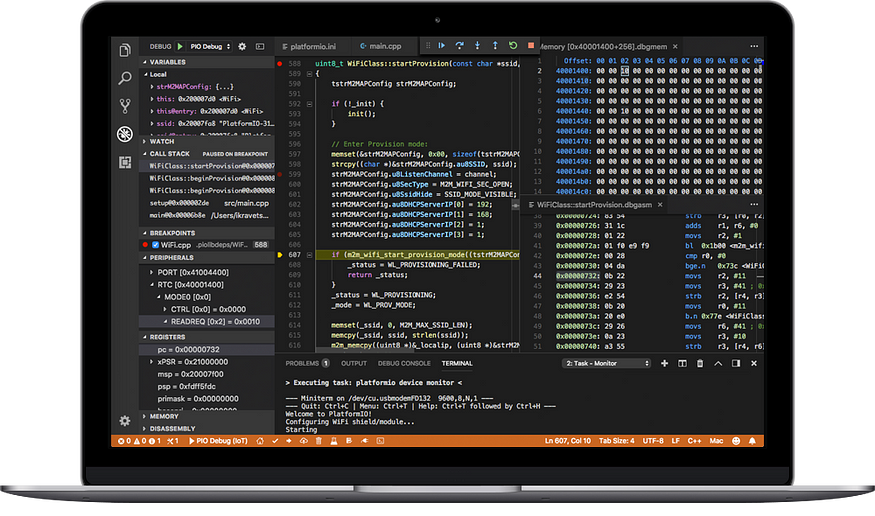
PlatformIO is a cross-platform, cross-architecture, multiple framework, professional Python Build tool for embedded systems engineers and software developers who write applications for embedded products.
It is written in Python and works on Windows, macOS, Linux, FreeBSD, and ARM-based credit-card-sized computers (Raspberry Pi, BeagleBone, CubieBoard, Samsung ARTIK, etc.). PlatformIO Core provides a rich and documented Python CLI.
Requirements:
- Python 3.5+
Features:
- Open source, maximum permissive Apache 2.0 license
- Cross-platform IDE and Unified Debugger
- Static Code Analyzer and Remote Unit Testing
- Multi-platform and Multi-architecture Build System
- Firmware File Explorer and Memory Inspection
How can it benefit Python Developers?
PlatformIO Core significantly benefits Python developers, especially those in IoT and embedded systems. It provides a unified environment for diverse hardware platforms, simplifying tasks like code compilation and firmware uploading. This fosters collaboration among developers handling different microcontrollers, making it ideal for IoT development.
PyBuilder
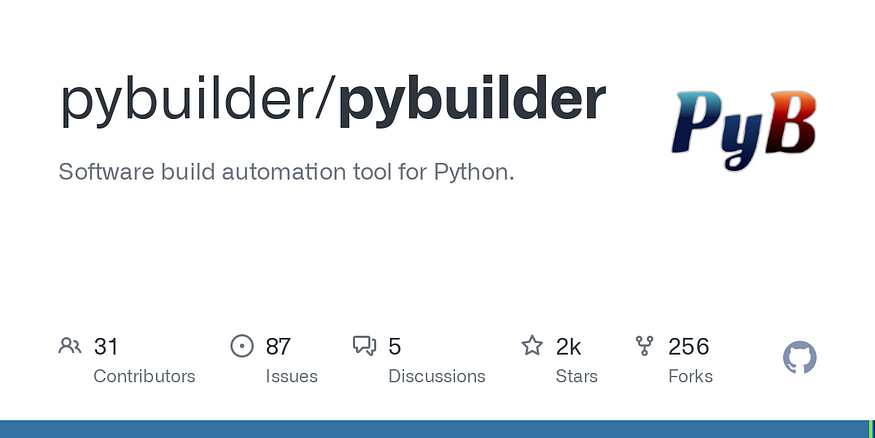
Pybuilder stands as a versatile Python build tool, streamlining the development and build process. It simplifies tasks like code compilation, testing, and package management, enhancing the efficiency of Python projects. PyBuilder’s configuration-as-code approach and easy-to-use syntax make it a preferred choice for developers seeking a straightforward yet powerful build tool.
Requirements:
- 3.7 to 3.12 and PyPy
Features:
- Code Compilation
- Testing Support
- Package Management
- Extensibility
- Convention Over Configuration
- Configurability
- Versatility
- Efficiency
How can it benefit Python Developers?
It hugely benefits Python developers by providing a streamlined and efficient build process. With features like easy code compilation, testing support, and simplified package management, PyBuilder enhances the overall development workflow. Its extensibility through plugin integration and a convention-over-configuration approach ensures a cleaner and more maintainable codebase.
While working on a Python project, you can consider using the Django Admin Template as well. It comes with many pre-built components and many useful features.

Scons
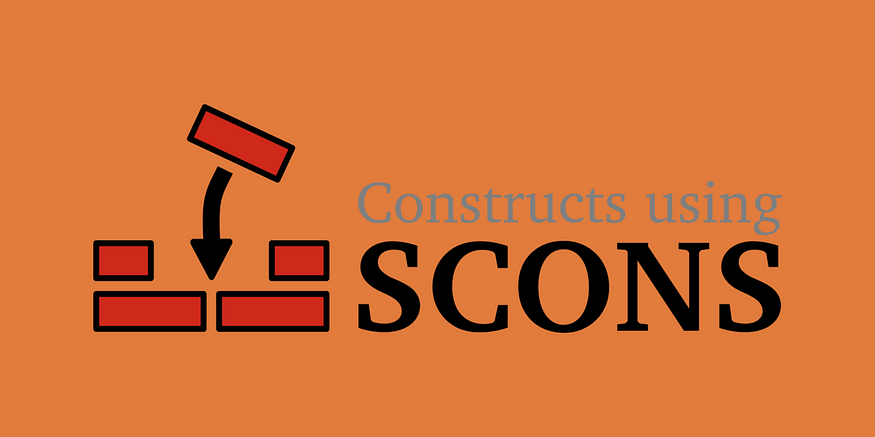
SCons, a Python build tool, distinguishes itself with a flexible and extensible design, offering a robust solution for building complex software projects. It utilizes a Python script as its configuration file, allowing developers to leverage the full power of Python for defining build processes. SCons stands out for its automatic dependency analysis, ensuring that only necessary parts of a project are rebuilt when changes occur, leading to faster and more efficient builds.
Requirements:
- Python 3.6+
Features:
- Configuration files are Python scripts
- Reliable, Automatic dependency analysis
- Built-in support for C, C++, D, Java, FORTRAN, Yacc, Lex, Qt and SWIG
- Built-in support for Microsoft Visual Studio
- Support for parallel builds
How can it benefit Python Developers?
SCons benefits Python developers with a versatile and extensible build tool. Its use of Python scripts for configuration allows easy definition of complex build processes, and automatic dependency analysis ensures efficient builds. Platform independence and built-in support for parallel builds optimize performance, providing a reliable solution for projects of varying scales and complexities.
Buildout
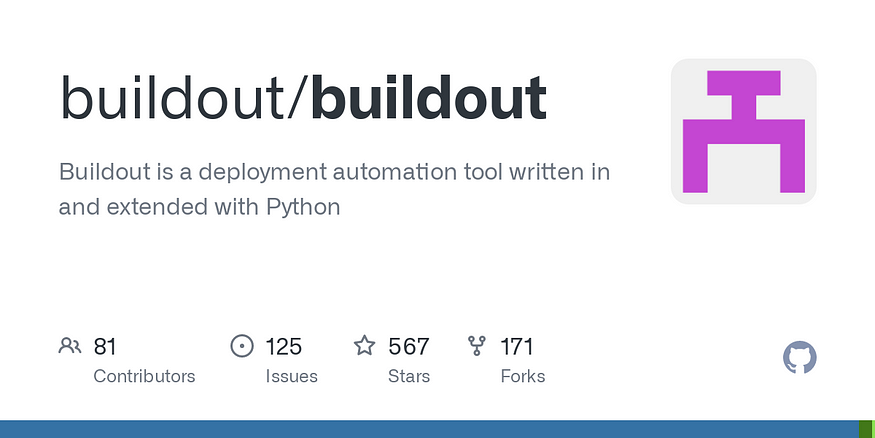
Buildout is also somewhat Python-centric, even though it can be used to assemble and deploy non-python applications. It has some special features for assembling Python programs. It’s scripted with Python, unlike, say puppet or Chef, which are scripted with Ruby.
Requirements:
- Python 3.6+
Features:
- Run build tools to build software.
- Apply software and templates to generate configuration files and scripts.
- Applicable to all software phases, from development to production deployment.
- Based on core principles:
- Repeatability
- Componentization
- Automation
How can it benefit Python Developers?
Buildout puts great effort toward making program assembly a highly repeatable process, whether in a very open-ended development mode, where dependency versions aren’t locked down or in a deployment environment where dependency versions are fully specified.

BitBake
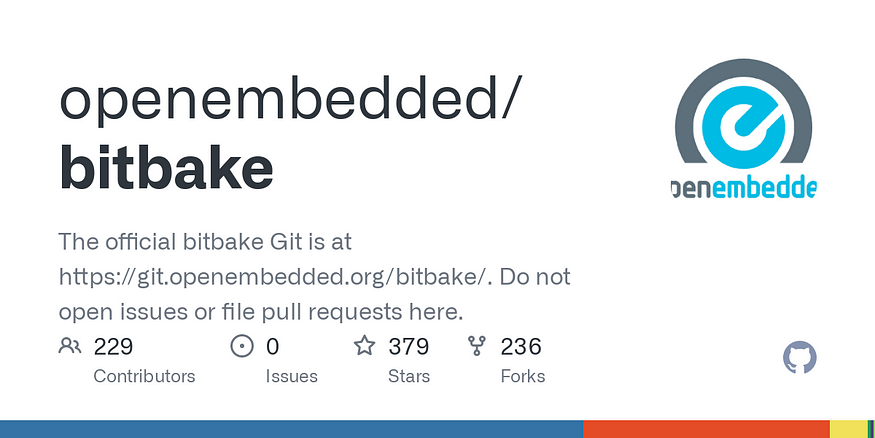
BitBake is a generic task execution engine that allows shell and Python tasks to be run efficiently and in parallel while working within complex inter-task dependency constraints. One of BitBake’s main users, OpenEmbedded, takes this core and builds embedded Linux software
stacks using a task-oriented approach.
Requirements:
- Python 3.8+
Features:
- Recipe-based approach
- Customization for hardware targets
- Scalability
- Extensibility
- Meta-data driven builds
- Suitable for embedded systems
- Handles complex build scenarios
How can it benefit Python Developers?
BitBake benefits Python developers with its robust, recipe-based approach for customizable builds, especially suited for embedded systems. Its scalability, extensibility, and metadata-driven build enhance project maintainability, offering an efficient way to manage complex build scenarios. Ideal for embedded Linux distributions, BitBake ensures reproducible and tailored builds for a range of projects, from resource-constrained devices to robust systems.
Parameters to consider while choosing the Build Tool:
- Compatibility: Ensure compatibility with your programming language and project requirements.
- Ease of Use: Choose a tool with a user-friendly interface and clear documentation.
- Community Support: Opt for tools with active communities for troubleshooting and updates.
- Integration: Check compatibility with your existing development environment and tools.
- Scalability: Consider the tool’s ability to handle growing and complex projects.
- Performance: Evaluate the build tool’s speed and efficiency in processing tasks.
- Dependency Management: Look for robust features for managing project dependencies.
- Customization: Assess the tool’s flexibility to adapt to your project’s specific needs.
- Build Script Language: Ensure the build tool supports a scripting language suitable for your team.
- Ecosystem: Consider the availability of plugins and extensions for extended functionality.
Conclusion:
In conclusion, the diverse landscape of Python build tools provides developers with an array of options to streamline and enhance their development workflows. Whether opting for the versatility of PlatformIO Core, the simplicity and power of PyBuilder, or the flexibility and scalability of SCons and BitBake, Python developers have tools tailored to their specific needs.
These build tools contribute to efficient code compilation, testing, and dependency management, fostering collaboration and innovation. The Python ecosystem’s commitment to providing accessible, extensible, and efficient build tools ensures developers can navigate the complexities of diverse projects, from IoT development to embedded systems, with confidence and ease.
As the Python community continues to evolve, these tools stand as indispensable assets, empowering developers to build robust and reliable software.
Comments
Loading comments…